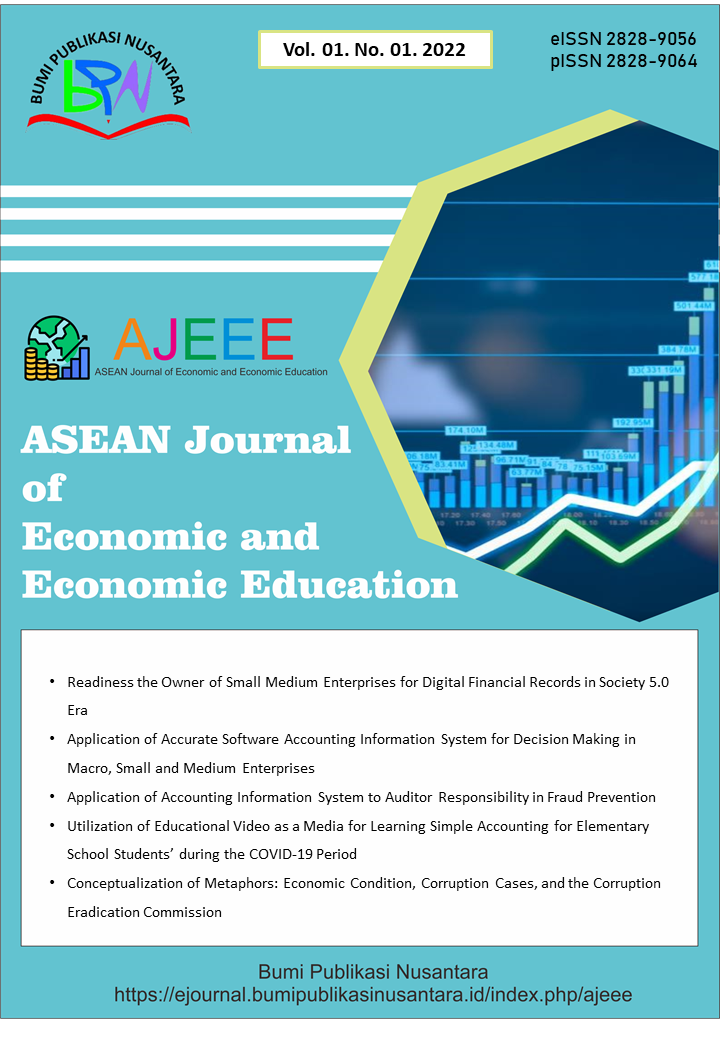Prioritizing Entrepreneurship Education and Entrepreneurship Intention Among Undergraduate Students
 ), Olaolu Paul Akinnubi(2), Kamoru Abidoye Tiamiyu(3),
), Olaolu Paul Akinnubi(2), Kamoru Abidoye Tiamiyu(3),
(1) Al-Hikmah University Ilorin
(2) Al-Hikmah University Ilorin
(3) Al-Hikmah University Ilorin
 Corresponding Author
Corresponding Author
Abstract
Keywords
References
Adebayo, O. S. and Olokundun, M. A. (2018). Entrepreneurship education and entrepreneurship intention among Nigerian undergraduate students. Journal of Entrepreneurship Education, 21(2), 1-8.
Adegun, O. A. (2013). Entrepreneurship education and youth empowerment in contemporary Nigeria. Journal of Emerging Trends in Educational Research and Policy Studies, 4(5), 746-751.
Adeleye, O., Akinlabi, H., and Adeleke, A. (2020). Entrepreneurship education in Nigeria: The present and future prospects. Journal of Entrepreneurship Education, 23(2), 1-10.
Adeyemo, D. and Akinlabi, B. H. (2017). Entrepreneurship education in Nigerian universities: Challenges and prospects. Journal of Education and Practice, 8(5), 163-169.
Aremu, M. A. and Adeyemi, S. L. (2011). Entrepreneurship education in Nigeria: Impact on students' entrepreneurial intentions. Journal of Management and Strategy, 2(4), 58-64.
Emaikwu, S. O. (2011). Integrating entrepreneurship skills acquisition in the university curriculum for national development. Journal of Research in Education and Society, 2(3), 40-48.
Fretschener, M and Weber, S. (2013). Measuring and understanding the effects of entrepreneurial awareness education. Journal of Small Business Management, 51(3), 410-428.
Hien, D. T. T., and Cho, S. E. (2018). Relationship between entrepreneurship education and innovative start-up intentions among university students. International Journal of Entrepreneurship, 22(3), 1-16.
Kolvereid, L. and Isaksen, E. (2006). New business start-up and subsequent entry into self-employment. Journal of Business Venturing, 21(6), 866-885.
Krueger, N. F., Reilly, M. D., and Carsrud, A. L. (2000). Competing models of entrepreneurial intentions. Journal of Business Venturing, 15(5), 411-432.
Kuehn, K. W. (2008). Entrepreneurial intentions research: Implications for entrepreneurship education. Journal of Entrepreneurship Education, 11, 87.
Kuratko, D. F. (2015). The emergence of entrepreneurship education: Development, trends, and challenges. Entrepreneurship Research Journal, 5(2), 71-98.
Lekoko, M., Rankhumise, E. M., and Ras, P. (2012). The effectiveness of entrepreneurship education: What matters most?. African Journal of Business Management, 65(1), 12023.
Letsoalo, M. E., and Rankhumise, E. M. (2020). Students'entrepreneurial intentions at two south african universities. Journal of Entrepreneurship Education, 23(1), 1-14.
Liñán, F. and Chen, Y. (2009). Development and cross-cultural application of a specific instrument to measure entrepreneurial intentions. Entrepreneurship Theory and Practice, 33(3), 593-617.
Liñán, F., Rodríguez-Cohard, J. C., and Rueda-Cantuche, J. M. (2011). Factors affecting entrepreneurial intention levels. Journal of Small Business Management, 49(4), 471 486.
Moses, C. L., Olokundun, A. M., Akinbode, M., Agboola, M. G., and Inelo, F. (2016). Entrepreneurship education and entrepreneurial intentions: The moderating role opassion. The Social Sciences, 11(5), 645-653.
Mwasalwiba, E. S. (2010). Entrepreneurship education: A review of its objectives, teaching methods, and impact indicators. Education Training, 52(1), 20-47.
Nabi, G., Walmsley, A., Liñán, F., Akhtar, I. and Neame, C. (2018). Does entrepreneurship education in the first year of higher education develop entrepreneurial intentions? The role of learning and inspiration. Studies in Higher Education, 43(3), 452-467
Ogundele, O.J., Oyewo, B., and Akeke, N.I. (2017). Entrepreneurship education in Nigerian universities: Challenges and the way forward. International Journal of Education and Research, 5(12), 109-118.
Okoro, E., Iwu-James, J., and Nwosu, C. (2019). Entrepreneurship education in Nigeria: Challenges and prospects. Journal of Entrepreneurship Education, 22(6), 1-11.
Ooi, Y. K., and Nasiru, A. (2015). Entrepreneurship education as a catalyst of business start-ups: a study on Malaysian community college students. Asian Social Science, 11(18), 350.
Peng, H., Li, B., Zhou, C., and Sadowski, B. M. (2021). How does the appeal of environmental values influence sustainable entrepreneurial intention?. International Journal of Environmental Research and Public Health, 18(3), 1070.
Shane, S. and Venkataraman, S. (2000). The promise of entrepreneurship as a field of research. Academy of Management Review, 25(1), 217-226.
Vodă, A. I., and Florea, N. (2019). Impact of personality traits and entrepreneurship education on entrepreneurial intentions of business and engineering students. Sustainability, 11(4), 1192.
Waita, D. M. (2014). Influence of entrepreneurship education on economic growth of county governments in Kenya: A case of Nairobi County. International Academic Journal of Information Sciences and Project Management, 1(2), 59-79.
Zampetakis, L. A., Kafetsios, K., Bouranta, N., Dewett, T., and Moustakis, V. S. (2009). On the relationship between emotional intelligence and entrepreneurial attitudes and intentions. International Journal of Entrepreneurial Behavior and Research, 15(6), 595-618.
Article Metrics
Abstract View : 1019 times
: 1019 times Download : 317 times
Download : 317 times
Refbacks
- There are currently no refbacks.
Copyright (c) 2023 Bumi Publikasi Nusantara

This work is licensed under a Creative Commons Attribution-ShareAlike 4.0 International License.



_publication_ethics1.png)



